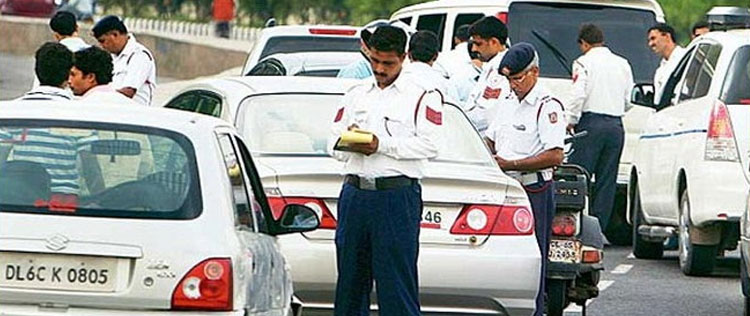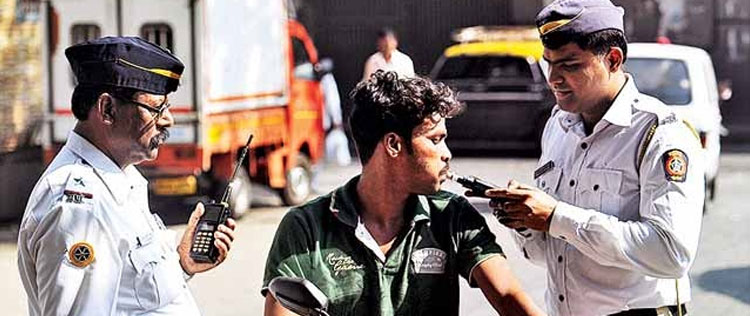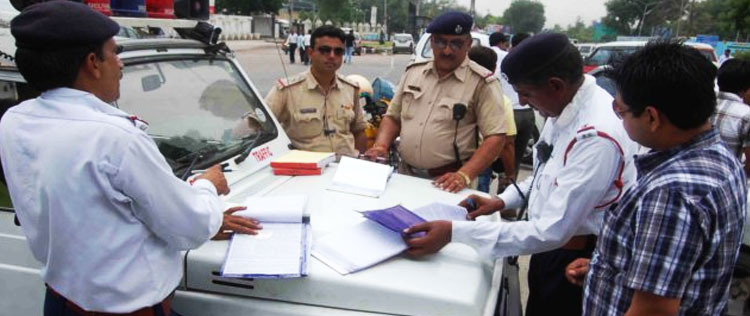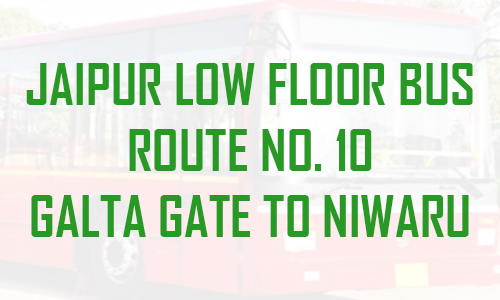Know your Rights when on Road - Traffic Police Constables Can’t Fine Motorists
Have you ever been stopped by a traffic police officer just to check your documents? Well, they cannot, until and unless you have violated any traffic law. Even then, only an ASI rank officer or above has the right to check your documents and not a traffic constable. A traffic constable has no business to check the documents.
Traffic Constables Can’t Check your Documents
If you are ever stopped randomly for no traffic law violation at all, or if anyone below the rank of ASI asks for your documents, you as the commuter can refuse to show them the documents and can even complain about them to senior officials. The traffic police will ask for all details like place, time and the name of the officer who stopped you, at the time you file your complaint. And the concerned officers will be notified to ensure that constables do not act over their powers.

Just like this one, there are many other rules and rights that we as public are often unaware of. You must be aware of what can traffic officers do and what not? Who can fine you for speeding or violating other traffic laws? Read further to Know your Rights and to know more about Traffic Laws.
Traffic Constables Can’t Take your Keys Off
Traffic constables cannot take the keys off for stopping your vehicle even when you violate any law.
Traffic Constables Can’t Arrest you or Seal your Vehicle
Traffic constables do not have the right to arrest you or to seal your vehicle.
Only RTO Officials can Ask for PUC Papers
Traffic constables cannot ask for the Pollution Under Control PUC Papers of your vehicle. This right belongs only to the RTO officials.
Traffic Police Constables Can’t Fine Motorists
The Indian Motor Vehicles Act, Section 132, says that only an assistant sub-inspector (one star), police sub-inspector (two star) and police inspector (three star) are authorized to receive payments against violation and issue a receipt. No police constable or head constable can issue a receipt and therefore, receive a payment. Traffic Police constables can only help them or keep a record of the violations on the basis of which a violation ticket will follow.

So, if a traffic police constable or head constable asks you for a spot fine, insist on getting a receipt. There are chances that he’ll let you go since he does not have the authorization to issue a receipt or receive money.
Who can Issue Fines?
Only an ASI rank officer or a SI rank officer can issue a fine of more than Rs.100. Head constables can only fine you up to Rs.100 while a constable has no right to issue fines.
Traffic Police Can Seize your Driving License
Traffic Police has all rights to seize your driving license when you:
- jump red lights
- overload goods
- ride passengers in vehicles meant for carrying goods
- drive/ride in drunken state or after consuming drugs
- converse on your mobile phones while driving
- violate speed limits
Traffic Police Officials are Required to Wear Uniforms
All Traffic Police officials ranging from constables to SIs wear white uniforms while inspectors and above ranking officers wear Khadi uniforms. All of them are required to be in their respective uniforms while issuing violation receipts and receiving fine money. Anyone from the Traffic Police, who is not wearing the uniform, has no right to take any kind of action against you.
Which Documents to Carry while Driving?
When driving/riding, it is essential to carry all important documents including your Driving License, the Registration Certificate of the vehicle, the Insurance Certificate of the vehicle and the Pollution Under Control PUC Certificate of the vehicle. Also note that you must carry the originals of your Driving License and the Pollution Under Control Certificate (PUC) while you can keep photo copies of the Registration Certificate and the Insurance Certificate of the vehicle.
Is wearing helmet compulsory in India?
Wearing helmet is compulsory for both riders and pillion riders. But it is not necessary to wear a helmet if you:
- are a Sikh wearing a turban (as per Section 129 of the Motor Vehicles Act, 1988 (MVA))
- have recently undergone a surgery in the above-neck area, mastoid surgery
3 Types of Chalan Issued on Violation of Traffic Laws
- On the Spot ‘Chalan’ – When you violate any traffic law, the traffic police officers issue a violation receipt and collect fine money from you on the spot itself. In case you do not pay the fine, the officers seize your Driving License and issue the violation receipt.
- Notice ‘Chalan’ – If you violate any traffic law such as jumping a red light or speeding and run away then, the officers note down your vehicle number and send the ‘chalan’ to your home. They give you a month’s time to submit the penalty amount. If you fail to do so then your ‘chalan’ is sent to the court.
- Court ‘Chalan’ – This type is ‘chalan’ is mostly issued when you break laws and can result in both penalty and imprisonment. For example, if you are caught in a ‘drunk and driving’ case, your ‘chalan’ will be issued on spot but you will have to visit the court to pay the penalty amount.
Now that you know more about your rights on road and about these many traffic laws, ensure that you put your rights to use along with following the rules.
Safe and Convenient Driving!














